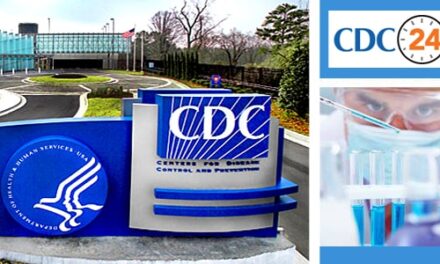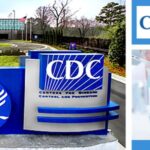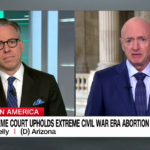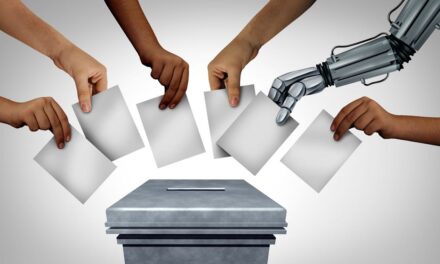
Masks are back, as Delta variant forces dramatic reversal in US

This is the weekly edition of CNN’s coronavirus newsletter. Look out for your roundup every Wednesday. If you haven’t subscribed yet, sign up here.
(CNN)Less than a month ago, the United States seemed to be shaking off the shackles of the coronavirus pandemic. A sense of achievement was in the air. At a Fourth of July celebration, President Joe Biden said America was roaring back to life and “closer than ever” to declaring its independence from the virus.
Now, it’s hit a wall.
- Case rates are rising in many parts of the country, throwing reopening plans for schools and workplaces into doubt, and threatening a fourth wave of the virus that could once again overwhelm hospitals.
- On Monday, the White House said it would not lift long-running Covid-related travel restrictions that have barred much of the world from entering the US since 2020, citing concerns over the highly transmissible Delta variant, which now makes up 83% of new infections in the country. And on Tuesday, in a stunning reversal, the Centers for Disease Control (CDC) recommended that some vaccinated people wear masks indoors and in public areas, following reports of breakthrough infections with Delta.
- Biden on Tuesday explicitly laid blame for the current situation on unvaccinated people — an escalation of his use of the bully pulpit as he furiously searches with his team for ways to curb the spread of the virus. “We have a pandemic because of the unvaccinated and they’re sowing enormous confusion,” Biden said. “If those other hundred million people got vaccinated, we’d be in a very different world.”
- As the virus rips through conservative communities in the US South, many Republicans have refused to push back on misinformation driving doubt in the vaccines’ safety and effectiveness. But, as the situation worsens, some are starting to speak out against skeptics.
- The Biden administration had hoped to deliver at least one shot to 70% of the adult population by Independence Day, but vaccination rates have stalled. Only half of the US population is partially vaccinated, according to CDC data, and the majority of those who are not vaccinated are not at all likely to get a shot, according to an Axios-Ipsos poll published last week.
- “It is really a pandemic among the unvaccinated … which is the reason why we’re out there, practically pleading with the unvaccinated people to go out and get vaccinated,” Dr. Anthony Fauci, the President’s chief medical adviser, told CNN’s Jake Tapper on “State of the Union” over the weekend — warning that the US was “going in the wrong direction.”
- Up until now, US officials have attempted to encourage Americans to get vaccinated through an array of incentives — from lotteries to fishing licenses and college scholarships — but they are beginning to consider more coercive measures to get shots in arms. Politicians, business leaders, scientists and vaccinated Americans who are fed up with the direction the country is headed are calling for vaccine mandates — if not by the federal government, then by local officials, school systems and employers.
- Biden will announce on Thursday that all federal employees and contractors will be required to have vaccinations against Covid-19, or submit to regular testing and mitigation measures, a source with direct knowledge of the matter told CNN. The announcement comes after the Department of Veterans Affairs became the first federal agency, California the first state and New York the first major city to announce vaccine requirements for their workers. The move reflects a dramatic shift from earlier messaging about the pandemic waning and signals the fight of Biden’s presidency is far from over.
YOU ASKED. WE ANSWERED.
Q: I’m vaccinated but just tested positive for coronavirus. What should I do?
A: “Fully vaccinated people should not visit private or public settings if they have tested positive for COVID-19 in the prior 10 days or are experiencing COVID-19 symptoms,” the CDC says.
“It’s possible a person could be infected just before or just after vaccination and still get sick.”
But after a person is fully vaccinated — two weeks after their final dose — there is reduced risk of spreading Covid-19, the CDC says. Research shows vaccinated people who still get breakthrough infections have less detectable virus (viral load) than unvaccinated people who get infected.
Send your questions here. Are you a health care worker fighting Covid-19? Message us on WhatsApp about the challenges you’re facing: +1 347-322-0415.
TOP 3 READS OF THE WEEK
This is what vaccine inequality looks like
Around half of all Americans are now fully vaccinated. In Africa, that figure stands at just 1.5%. Larry Madowo, a Kenyan journalist and CNN correspondent based in Nairobi, shared his experience of that acute inequality. Here’s an excerpt:
Every time I see a call from home, my heart sinks. I always fear that they’re ringing to say that my grandmother has died. She has been on a ventilator for four weeks and my anxiety is near breaking point. The dreaded call could come at any time: Covid-19. Again.
Even at 96, my Kenyan grandmother was among hundreds of millions in the developing world who was not vaccinated until recently because rich nations have hoarded most of the available shots. Though I’m more than 60 years younger than her, I was fully inoculated by April because I was living in the United States, where anybody over 12 can get a vaccine if they want one.
The acute shortage of doses for the world’s poorest people has been called “vaccine apartheid,” “greed” and a “catastrophic moral failure.” Yet the public shaming has made little real difference, and Africa has received the fewest vaccines in the globe so far. Public health authorities have warned that during a global pandemic nobody is safe until everybody is safe. And vaccine inequity means that new virus strains could emerge in Africa and spread quickly to the rest of the world, rendering any mass vaccination gains elsewhere ineffective.
Europe tried to boost vaccine take-up with carrots. Now it’s breaking out the sticks
As the pace of Covid-19 vaccinations in Europe also shows signs of a slowdown, leaders are racing to find answers to a key dilemma of the rollout’s next phase: how to convince reluctant citizens to roll up their sleeves, Tara John writes.
From cash payments to phone data, football stadium tours to free grilled meat, officials have offered up a range of carrots to entice people to get shots. Now, as the Delta variant rips across the continent, threatening to spark another round of lockdowns at the height of summer, some leaders are bringing out the sticks.
France has passed a law that requires a “health pass” showing proof of vaccination or a negative PCR test in order to enter restaurants, bars and for travel on long-distance trains and planes, starting in August. Greece, facing a spike in infections that is threatening the revival of its crucial tourism industry, went a step further in mid-July, barring the unvaccinated from indoor restaurants, bars, cafes and movie theaters; it also ordered mandatory shots for healthcare workers. And Italy, which mandated vaccines for health care and pharmacy workers in April, has announced that it too will impose similar restrictions on indoor venues for residents without proof of immunity.
Australia once reveled in being the ‘lucky country’ on Covid-19. Now Aussies ‘feel like prisoners’
A postcard of kangaroos lounging among gumtrees arrives in our letterbox in London, addressed to my 4-year-old daughter. “My darling,” it says. “How are you? Are you enjoying school? Do you have friends? Your brother is one year old now. I hope you can come and see me in Australia one day. I love you and think of you often — from ‘Nana in Australia.'”
“Nana in Australia” is the pixelated face on my laptop, the voice cutting out on my phone. She lives on the other side of the world, in a place where Covid-19 doesn’t exist, or at least not to the degree that it has ravaged the United Kingdom with a terrifying ferocity, Sheena McKenzie writes.
For much of 2020, Australia’s success in controlling the virus was the envy of the world. By March of that year, as Italian hospitals drowned in cases and the UK dithered about restrictions, Australia decisively closed its borders — and the tactic initially paid off.
A country of 25 million people, it has recorded just over 900 coronavirus-related deaths since the pandemic began. Its total case numbers are around 32,000 — a figure the UK was recently exceeding daily. And its economy has bounced back. But more than a year on, Australians remain shut inside their gilded cage, relying on a series of short, sharp lockdowns to quell an outbreak of the highly-contagious Delta variant.
TOP TIP
Put your mask back on. Yes, even if you’re vaccinated.
The change in CDC guidance recommending vaccinated Americans wear a mask indoors in areas with high Covid-19 transmission is a sign that the Delta variant has once again transformed the pandemic landscape and the public health measures aimed at fighting the virus.
“We’re not changing the science,” Dr. Anthony Fauci told CNN. “The virus changed, and the science evolved with the changing virus.”
Before Tuesday, the CDC advised only unvaccinated people to wear masks indoors. But that guidance was updated in light of new scientific data from several states and other countries indicating that, in rare occasions, some vaccinated people infected with the Delta variant after their shots may be contagious and spread the virus to others.
What’s the new guidance?
- Children and adults in K-12 schools should wear masks, regardless of vaccination status. Period.
- Vaccinated Americans should wear masks indoors if they are in high or substantial transmission areas.
- The CDC wants local leaders in high transmission areas to support vaccination and universal masking.
LISTEN TO OUR PODCAST
For the past year and a half, the pandemic has kept many older adults apart from their loved ones. But now that people are getting vaccinated, many older Americans are finally reuniting with their friends and family. On today’s episode, CNN Chief Medical Correspondent Dr. Sanjay Gupta speaks with doctors about ways we can support the older adults in our lives through the pandemic and beyond. Listen Now.
Source: http://rss.cnn.com/~r/rss/cnn_topstories/~3/7C2cYGdx3lU/index.html

















